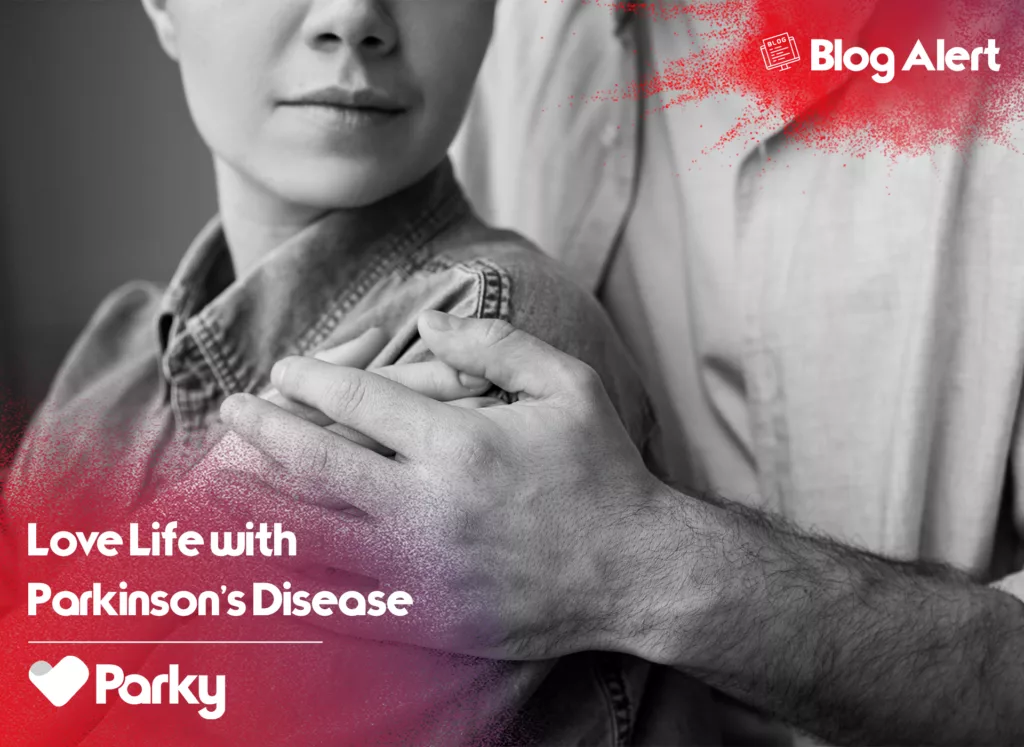

Living with Parkinson's disease (PD) is a journey for not just the person diagnosed, but for their loved ones as well. The disease throws shadows onto various aspects of life, and intimacy often seems like one of the first casualties. But here's the good news: it doesn't have to be that way. Dealing with challenges brought by chronic illnesses like PD can indeed pose difficulties in your daily love life. However, navigating through them together can deepen the connection with your partner.
Parkinson's disease (PD) can impact intimacy in a relationship due to the complex interplay of physical, emotional, and psychological factors. The gradual progression of motor symptoms like tremors and rigidity can hinder physical expressions of affection. It can make simple gestures challenging. Beyond the physical, the emotional toll of PD can be significant. Depression, anxiety, and fear can affect both partners, impacting their desire for intimacy and ability to connect emotionally. However, it's important to remember that navigating these challenges doesn't have to be a lonely journey.
Enhancing intimacy in the face of Parkinson's challenges requires a thoughtful and adaptive approach.
Open communication serves as the cornerstone for maintaining a strong and resilient connection between the partners. Creating an environment where both partners feel at ease expressing their needs, desires, and concerns is essential.
This fosters a sense of mutual understanding and support. Whether discussing physical limitations, emotional struggles, or aspirations, open and honest communication is essential. It serves as the foundation for building trust and empathy in a relationship.
Embrace non-physical expressions of love and intimacy, such as verbal affirmations and emotional support. Engage in shared activities that foster a sense of closeness. Whether it's pursuing hobbies, embarking on new adventures, or simply spending quality time together, common experiences can contribute to the depth of your emotional bond. The strength of a relationship often lies in the emotional connections nurtured beyond the physical realm.
Both partners should educate themselves about how Parkinson's disease can affect intimacy. Partners investing time to learn about the intricacies of the condition demonstrates a mutual dedication to understanding and supporting one another. Understanding the physical and emotional aspects of the condition can help in finding solutions together.
Navigating this journey together is crucial for couples affected by Parkinson's. For that reason American Parkinson's Disease Association(APDA) created a guide called "Parkinsex". Here's the link for the APDA ParkinSex guide. ParkinSex guide received three MM+M awards, including the prestigious titanium Best in Show. The guide is designed to assist individuals with Parkinson’s disease and their partners in maintaining sexual intimacy. Remember, every couple's journey is unique. Be patient, flexible, and celebrate your efforts as you navigate this together.
To get a glimpse of Parkinsex guide, watch the video published by APDA.
Medications prescribed to manage Parkinson's disease symptoms, particularly those aimed at modulating dopamine levels in the brain, can have varying effects on sexual function.
Certain dopamine agonists have been associated with impulsive behaviors, including hypersexuality, in some cases. Anticholinergic medications, prescribed for managing symptoms like tremors and rigidity, can result in vaginal dryness and erectile dysfunction.
Parkinson's disease medications can also affect overall energy levels and contribute to fatigue. For individuals managing the challenges of PD, fatigue may impact their interest and ability to engage in sexual activities. The psychological impact of Parkinson's disease can influence sexual function independently of medication. Anxiety, depression, and stress may contribute to sexual dysfunction. These factors can interact with the effects of medication.
To minimize these impacts, maintain transparent communication with your primary care physician. Discussing any sexual concerns you may be experiencing is crucial for creating a supportive and understanding healthcare environment. Consult with your doctor for potential adjustments to effectively manage PD symptoms and minimize side effects.
Also, individuals are encouraged to keep a detailed record of their experiences. They can include any changes in sexual desire, function, and side effects of medications. Self-tracking empowers individuals to notice patterns, make informed observations, and communicate effectively with healthcare professionals.
Yes. While no one-size-fits-all solution exists, several exercises and therapies may contribute to maintaining or improving sexual function:
Physical Exercise: Engaging in regular aerobic exercise, such as walking, swimming, or cycling, can enhance cardiovascular health, boost energy levels, and potentially improve sexual function.
Sensate Focus: Sensate focus is a therapeutic technique that involves gradual and structured touching between partners. It can help patients with Parkinson's disease and their partners reconnect physically and emotionally, fostering a sense of intimacy.
Psychosexual Counseling: Psychosexual counseling, provided by therapists specializing in sexual health, can address psychological aspects impacting sexual function. It may involve exploring communication, managing stress, and developing coping strategies.
Community Engagement: Joining Parkinson's support groups or sexual health forums can provide a sense of community. It allows individuals to share experiences, insights, and advice on managing sexual function.
In the end, what truly matters is how you and your partner define a loving and healthy relationship. Embrace the journey with understanding, compassion, and shared resilience as you navigate life with Parkinson's. Your relationship's strength lies in mutual support and the unwavering bond you've cultivated together.
Join our community in spreading hope and strength. Tell us your unique journey with Parkinson's to uplift and empower others.